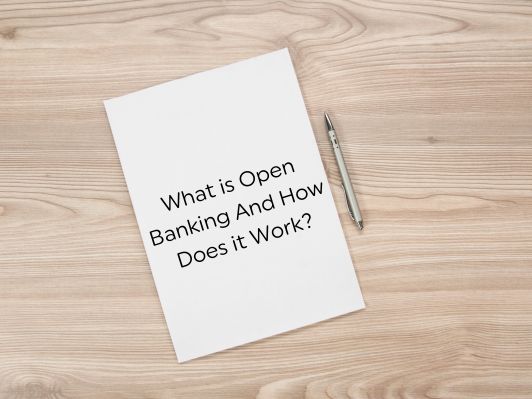Are you ready to embark on a journey into the future of banking? Open Banking is your choice.
It’s a game-changer! A revolution designed to give you more control over your finances. Open Banking isn’t just a buzzword. It’s a tool for you to shape your financial destiny. Let’s dive into this world of financial options. Today you’ll discover how Open Banking is here to benefit you!
What is Open Banking?
Open Banking empowers you to securely share your financial data. It’s your data after all. You can share it with authorised financial providers. Anywhere in the UK. The banking laws of in the UK sets the standards for this. In practice the standards for this are published by Open Banking Limited. They are asked by the Competitions and Markets Authority to do this.
This was all started by the European Union. It initiated the Second Payment Services Directive (PSD2). This is the roots of Open Banking in the UK. PSD2 was introduced in October 2015. The crucial changes impacting Open Banking started in January 2018.
Advantages of Open Banking for Consumers

Open Banking provides you choice. It enhances your customer experience and boosts security for you. It also provides innovative solutions to meet your needs. Here are the advantages for consumers like you in the UK:
1. Enhanced Customer Experience
Open Banking puts you, at the centre of the financial ecosystem. It drives competition, enhancing customer experience. Here’s how:
Streamlined Account Access:
Open Banking allows accessing many accounts through one interface. No more jumping between several banking apps. Online or mobile banking websites. Or slow traditional financial services.
Real-time Financial Insights:
Open Banking empowers you with real-time access to your financial data. You can see current account data. You can track your transactions. Check your account balances. See your financial health. All at a glance. All in one place.
Personalised Recommendations:
Open Banking apps analyse your data for special advice. Get exclusive guidance for informed decisions. This can help with budgeting and investments.
2. Robust Security Risks
Security is a paramount concern. Especially when it comes to financial transactions. Or even data breaches. Open Banking takes security seriously. It offers several layers of protection:
Consent-based Data Sharing:
Open Banking requires your consent for sharing financial data. You control what information to share and with whom.
Advanced Encryption:
Your data undergoes encryption during both transmission and storage. This makes it hard for unauthorised parties to access your information.
Regulatory Oversight:
In the UK, stringent regulations govern Open Banking. These regulations ensure that all involved adhere to data protection laws. They also have to meet all the security standards.
3. Reduced Service Costs
Open Banking drives cost-efficiency. Both within the traditional banks and financial services industry. This, in turn, can lead to cost savings for you.
Competition-Driven Pricing:
Whether it’s a top financial institution. Or other financial service providers vying for your business. Competitive pricing becomes the norm. You could see better deals. Or lower fees. For the various financial products and services, you have. You might even notice this when online shopping.
Ending Duplicate Costs:
You can access your accounts. And other financial providers’ data. You can eliminate the need for multiple apps. Or so many savings accounts. It also helps you avoid paying redundant fees. You can optimise your savings account financial setup for efficiency.
4. Centralised Information
Managing your bank account. Your credit cards. Even your online shopping and finances becomes easier. And more efficient. With Open Banking’s centralised approach:
Single Dashboard:
Open Banking-enabled apps and platforms provide a single dashboard. This is for you for e-money accounts and your banking app. You can view all your financial accounts in once place. This offers a complete overview of your financial life.
Unified Payments:
You can start payments from various bank accounts using a single platform. This simplifies the payment process. It also reduces the likelihood of errors.
5. Innovative Solutions
Open Banking has paved the way for groundbreaking financial innovations. These innovations benefit you:
Access to New Financial Products:
Open Banking creates unique financial products and services. You gain access to a wider array of offers. These can cater to your unique needs.
Effortless Budgeting:
Apps leveraging Open Banking can analyse your spending habits. They can help you create realistic budgets. You can track your expenses and work towards your financial goals.
Seamless Integration:
Open Banking integrates financial services into your everyday life. This enhances accessibility and convenience. You can: Manage payments. Transfers. Flexible savings accounts. Current accounts. Investments. Online banking. And loads more! Seamlessly!
Sharing Financial Data Securely with Third-Party Providers

Open Banking enables you to share your financial data. You can do this with third-party financial service providers. It doesn’t just have to be banks and building societies. These can include budgeting apps, investment platforms, or financial advisors. You can share your bank account information and data through explicit consent. This ensures its protection using secure channels.
Personalised Financial Services through Open Banking
Third-party providers can offer personalised financial services. They get access to your financial data from your banks and building societies. These services tailor to your needs and spending habits. This can include personalised budgeting advice. Or even investment recommendations. It also helps you make informed financial decisions.
Reasons You Can Trust Open Banking Technology
Here are reasons why you should trust open banking:
1. You are in Control
One of the key reasons to trust Open Banking is the control. It places it in your hands. You have the authority to decide what data to share and with whom.
Your consent is mandatory for sharing your financial information. This ensures that you are in control. You dictate how your data is used. And who can access it.
2. Revoke Access Anytime
Flexibility is at the heart of Open Banking. You can do it if you feel uneasy. Or if you want to stop a third party’s access to your data. Open Banking allows you to revoke third party access anytime. You remain in charge of your data and privacy.
3. Safe and Secure
Security is a fundamental aspect of Open Banking. Rigorous security measures are in place to protect your data. Advanced encryption protocols are used. This secures the transmission and storage of your financial information. This ensures that your data remains safe. It means it’s inaccessible to unauthorised entities. This can give you peace of mind.
4. FCA Regulated
Open Banking is overseen by the Financial Conduct Authority (FCA). The FCA enforces strict standards for Open Banking compliance. This ensures compliance with data protection and security laws.
5. Find Open Banking Services
Open Banking apps open the door to a range of financial services. These can be designed to cater to your needs. From budgeting apps to a banking app to investment platforms. Open Banking services offer convenience and efficiency. Relevant financial authorities regulate these services. This can further bolster the trustworthiness of the offerings.
European Payment Services Directive (PSD2) and Open Banking Regulations in the UK
In 2007, the European Union introduced the Payment Services Directive. This was a significant piece of legislation. The financial industry refers to the updated directive in 2015 as PSD2.
Payment Services Regulations (PSRs) were introduced by the EU. They facilitated the enforcement of PSD2 in EU member states. The FCA regulates open the banking industry in the UK. It does this by utilising these PSRs.
PSD2 brought about pivotal changes. It granted customers specific rights. This applies to their financial transactions and data.
Customers can request two essential services from third-party providers:
Payment Initiation Services (PIS): This allows providers to start payments. But only on behalf of small businesses or customers.
Account Information Services (AIS): Customers gained the right to grant more access to their financial data.
Choosing the Right Open Banking Providers
When choosing Open Banking providers, it’s important to get it right. Opt for reputable and authorised financial institutions only. Ensure they follow secure practices. Check they have a robust track record of data protection. Your choice of account provider can impact the security. And any other benefits you get.
Take control of your finances with Drafty – a user-friendly alternative to loans, overdrafts, and credit cards. Your financial empowerment awaits – try Drafty now. Experience a better way to manage your finances!
FAQs
How does open banking work in the UK?
It provides a secure method for secure access to your data within the UK. It emerged as a consequence of PSD2, although they are distinct concepts. PSD2 mandates data access. Open Banking standardises the sharing format.
What is a simple example of open banking?
Open Banking UK relies on the Open Banking API UK. It uses this retrieve customer data, and transaction history from bank databases. If a third-party provider (TPP) needs specific information, they start a request from the customers. Examples of this could be marital status. Or other things. They do this by sending a call to the Open Banking UK API.
How do you explain open banking?
Open Banking lets people access their banking data anywhere, always. And only with their explicit consent. Open Banking aims to empower you. It gives you financial control. It enables personalised lending services.
Disclaimer: The information given above is provided for reference only. This is not financial advice.
Related guides:




![How to Use a Credit Card to Build Credit? [5 Steps Guide] How to Use a Credit Card to Build Credit](https://www.drafty.co.uk/blog/wp-content/uploads/2023/10/How-to-Use-a-Credit-Card-to-Build-Credit-218x150.jpg)